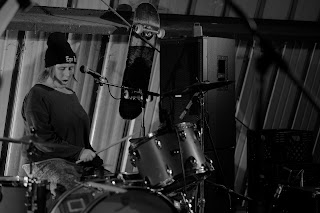“I don’t have any
great ambition. I just want to be an organic vegetable farmer.”
– Todd
McDonald, 2001
 My husband Todd and I were –are– first generation farmers. This means we started our operation
from scratch. Starting in 2007 we slowly built up equipment, knowledge, and
infrastructure that included systems for growing, harvesting, and selling. Each
season we supplied 100–250 CSA members with a weekly share of our crop,
harvesting twice a week June through October. Last season (2015), one that the
federal government officially declared a Disaster in our county, we decided we
had to stop.
My husband Todd and I were –are– first generation farmers. This means we started our operation
from scratch. Starting in 2007 we slowly built up equipment, knowledge, and
infrastructure that included systems for growing, harvesting, and selling. Each
season we supplied 100–250 CSA members with a weekly share of our crop,
harvesting twice a week June through October. Last season (2015), one that the
federal government officially declared a Disaster in our county, we decided we
had to stop.
We were out of money and energy and had forgotten why we started
farming to begin with. For years we had lived in a state of constant stress
that comes with the unpredictability of farm expense, seasonal labor, and
weather.
In more hopeful times, I’ve called this business of organic
farming gratifying, because we supplied our members with organic food and were
part of a movement that felt –feels– big
and important. As a Community Supported Agriculture farmer, I felt like a
grassroots activist. I hosted “awareness-spreading” events in the city, spoke
about the significance of CSA in interviews, and even cofounded a CSA Coalition. I am still a fan of both CSA and organic food production. The
ongoing issues of chemical pollution, the state of organic seed, and global
corporate control of food are still big concerns of ours. We have just realized
that martyring ourselves is not the way to go.
“I was living my dream. And it was a
nightmare.”
–Todd McDonald, 2016
I will now let you in on a dirty little secret among first generation [organic]
vegetable farmers. I think it should be made public. The secret is this: This
is not an idyllic life. We are not making money to sustain our families. In
fact, we are losing money year after year, investing our own savings or using
money generously donated by other family members only to discover we may not be
able to wait long enough for those investments to pay off. Many of us receive
Medicaid. We will be paying off debt for years to come.
SO, as farmers, is it “sustainable” if not one of us says out
loud, “This sucks. This isn’t working”? In
our silence do we perpetuate the myth of the idyllic family farm? Picture a
wholesome couple working side by side along smiling goats and baskets of
perfect heirloom tomatoes in trim, abundant rows. Their white farmhouse gleams
while a rooster crows in the gentle breeze. With this beautiful picture firmly
in place in the minds of new farmers, the cycle begins afresh. New farmers
begin their businesses, struggle to convey the picture of idyllic farm life for
the sake of their customers, run out of money, use up all their credit, and finally
quit. Just in time another new farmer steps up – having been told only of the beautiful
myth – and falls into the same trap. Again and again until the system appears
to be working. But it’s not. I know a lot of farmers like us. I am not making
this up.
Why did our farm lose money? Did we not love it enough? Are
we not skilled or smart or tough enough? Is the problem in our country so deep
it is unfixable? Is it a question of reorganizing farm subsidies? Controlling
monopoly within the food industry? Educating consumers? Educating farmers? Is it just a regional
problem? Climate change?
My husband and I are smart. We wrote a business plan. We went to Farm Beginnings classes. Between the two of us you’ve got a high
school valedictorian, a college graduate, an experienced gardener, a Master
Gardener, a self-made fine woodworker, a mechanic, a carpenter with experience
building houses, two creative problem solvers, an extrovert, an introvert, a
good planner, a fast reactor, and the former captain of an award-winning flag
corps. We have an extraordinary tolerance for chaos, dirt, and debt. We are
also these things: an artist, a musician, a snowboarder, yoga teacher, massage
therapist, husband, wife, father, brother, sister, daughter, son, and two
people that want a little basic comfort in life.
We are looking for
answers to the question of how to keep being farmers without losing all the
other pieces of ourselves. Personally I still can’t talk about kale without my eye
twitching, but I do want this conversation. Farmer friends, what is your
reaction? Can we stop what I perceive as a cycle of martyrdom while continuing
to farm? Or…am I wrong in my perception?
In the meantime, here is what happens when we put down our hoes. Labor Day Weekend 2016:


















































